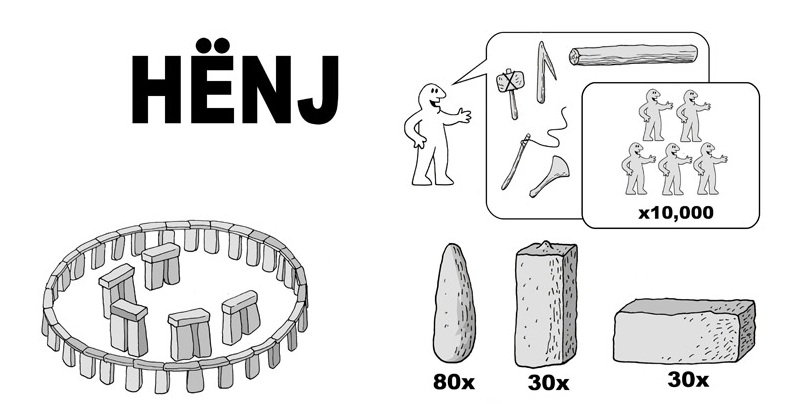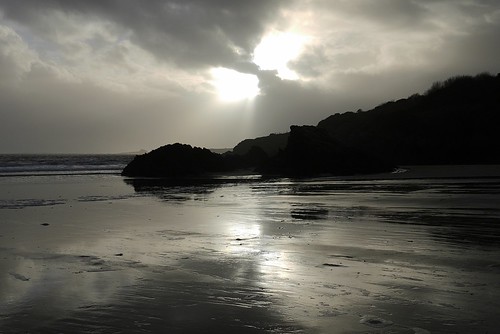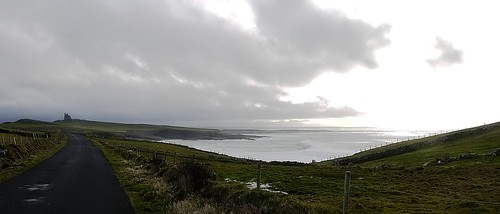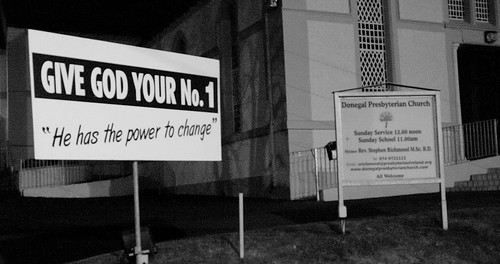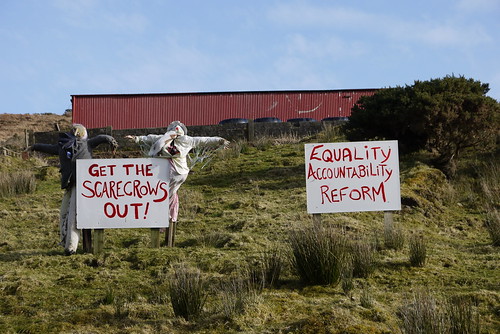On the Sligo coast, the castle (distant, on the left of the picture) that once belonged to Lord Louis Mountbatten before he was killed when the IRA blew up his fishing boat in August 1979, defies the elements.
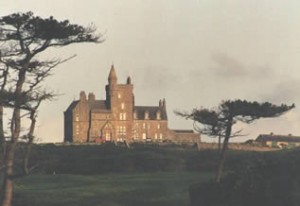 I had often wondered how Mountbatten could afford such a magnificent holiday home. It turns out that his wife Edwina, who was the daughter of the banker Ernest Cassel, one of the richest men in Europe in his time, inherited it. The castle was begun by Lord Palmerston, the British Foreign Secretary famous for gunboat diplomacy, who was notorious in Ireland for the way he cleared his estate of tenants during the Famine.
I had often wondered how Mountbatten could afford such a magnificent holiday home. It turns out that his wife Edwina, who was the daughter of the banker Ernest Cassel, one of the richest men in Europe in his time, inherited it. The castle was begun by Lord Palmerston, the British Foreign Secretary famous for gunboat diplomacy, who was notorious in Ireland for the way he cleared his estate of tenants during the Famine.
As a summer visitor, Mountbatten seems to have kept a low profile. “The Mountbattens”, wrote a local historian, “were absentees”.
“Their visits created no stir among villagers, who were well used to visitors of all types. For most here, the only indication that the Mountbattens were in residence was the house flag flying from the roof. Or they might see the ill-fated Shadow V [Mountbatten’s fishing boat] leaving the harbor, or returning.
Sometimes, the old man could be seen puttering about with a shrimp net in the harbor. For the most part, he and his wife minded their business and villagers minded theirs. Most had no idea of his close relationship to the Royal Family, nor cared.”
The Boy Scouts who often camped in the woods on castle grounds flew the Irish tricolor over their camp. The story goes that the flag was spotted by Mountbatten’s wife when she was being driven down to the village. She complained to the chauffeur that it shouldn’t be flown on their property — with a view to getting him to do something about it.
Mountbatten, however, disagreed. ‘Why shouldn’t they fly it?” he said. “It might be our property, but it’s their country'”

